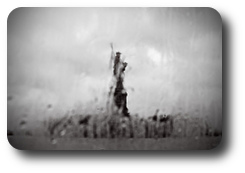Saturday 31 October, 3.30pm until 5.00pm, Upper Gulbenkian Gallery Keynote Controversies
 Earlier this year, the Convention on Modern Liberty brought together over a thousand campaigners, activists and thinkers in London to discuss how best to stand up for freedom in an increasingly illiberal political climate. Should we see liberty primarily as a legal or cultural question, and which issues define freedom for our time? Is it the campaign against detention without trial, or against the ban on smoking in pubs? The introduction of identity cards, or compulsory parenting lessons? The right to protest, or the right to take pictures in public places?
Earlier this year, the Convention on Modern Liberty brought together over a thousand campaigners, activists and thinkers in London to discuss how best to stand up for freedom in an increasingly illiberal political climate. Should we see liberty primarily as a legal or cultural question, and which issues define freedom for our time? Is it the campaign against detention without trial, or against the ban on smoking in pubs? The introduction of identity cards, or compulsory parenting lessons? The right to protest, or the right to take pictures in public places?
No doubt all of the above are important. But how we challenge attacks on freedom depends a lot on what we understand freedom to be. Is it fundamentally about formal rights, or lived experience? Is there any more to freedom than the right to be left alone? Why does freedom matter anyway? Should we be more concerned with building a fairer and more equitable society than obsessing over individual liberties? Is it self-indulgent to campaign around ‘freedom’ in the West, when we enjoy liberties that are only dreamt of in other parts of the world, from China to Zimbabwe? Campaigners often invoke the spectre of fascism or Orwell’s Big Brother to highlight the need for vigilance, but what about less dramatic, more insidious curbs on freedom? Are we neglecting Britain’s unique contribution to unfreedom in the form of ‘antisocial behaviour orders’, for example, or CRB checks for anyone who goes near children? How important is the idea of freedom to politics in our time?
Listen to the session audio…
Other formats are available here
 | Anthony Barnett founder, openDemocracy; co-editor, OurKingdom |
 | Jo Glanville director, English PEN |
 | Mick Hume editor-at-large, online magazine spiked; author, Trigger Warning: Is the Fear of Being Offensive Killing Free Speech? |
 | Wendy Kaminer US-based writer on law, liberty, feminism, religion, and popular culture; author, Worst Instincts: cowardice, conformity and the ACLU |
| Chair: | |

|
Dolan Cummings
associate fellow, Academy of Ideas; author, That Existential Leap: a crime story (forthcoming from Zero Books) |
 We must stop being tolerant of repression
We must stop being tolerant of repression
In a recent speech, the libertarian Wendy Kaminer argued that state intervention into everyday life is giving rise to ‘habits of submission’.
Wendy Kaminer, spiked, 12 November 2009People everywhere have been too willing to trade freedom for prosperity or security.
John Kampfner, Independent, 21 September 2009 The fight for individual liberty starts here
The fight for individual liberty starts here
As the UK parliament votes for detention without charge for 42 days, spiked sets out a 10-point action plan for rescuing democratic rights.
Brendan O'Neill, spiked, 17 June 2009The Convention on Modern Liberty, a gathering of more than a thousand people in central London in February, provided space for a much-needed discussion about liberty, though the most radical ideas came from Christians and academic historians.
Sarah Boyes, Culture Wars, 10 April 2009The Joseph Rowntree Reform Trust has published a major report on the UK's Database State. Technology is transforming government, and there is an urgent need to control and understand it.
Anthony Barnett, openDemocracy, 22 March 2009In October 2007 Her Majesty’s Revenue and Customs lost two discs containing a copy of the entire child benefit database. Suddenly issues of privacy and data security were on the front page of most newspapers and leading the TV news bulletins.
Ross Anderson, Ian Brown, Terri Dowty et al, Joseph Rowntree Reform Trust, March 2009